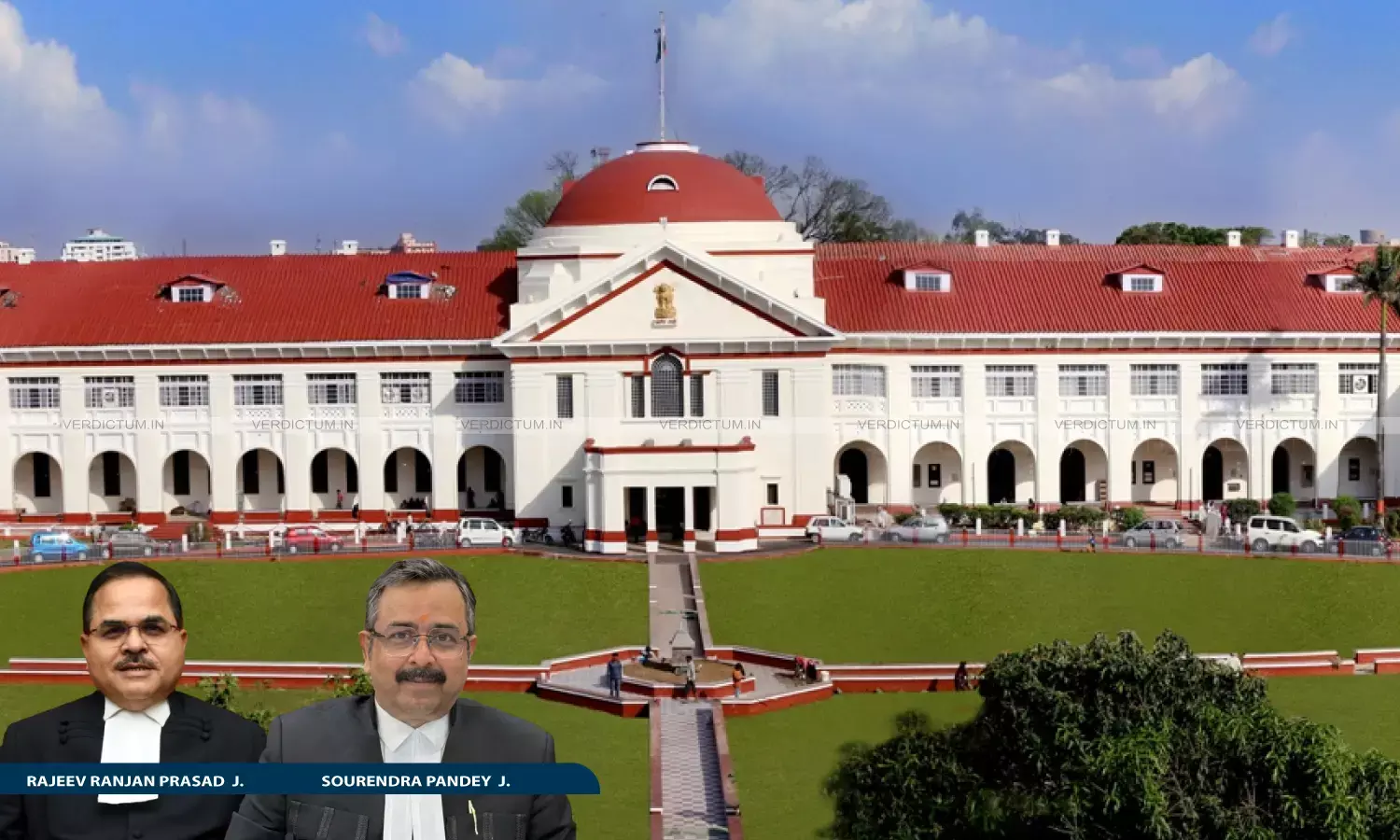Mere Incarceration Of 2.5 Years Not A Ground For Bail In UAPA Case Involving Threat To National Security: Patna High Court
The High Court held that the length of custody cannot justify release on bail in a prosecution under the Unlawful Activities (Prevention) Act when the allegations disclose prima facie involvement in activities posing a threat to the security of the nation and its citizens.

The Patna High Court has held that prolonged custody of two and a half years cannot, by itself, constitute a ground for bail in a case prosecuted under the Unlawful Activities (Prevention) Act, 1967, where the allegations relate to activities threatening the security of the nation.
The Court was hearing a criminal appeal filed against the order of the Special Judge, NIA, Patna, rejecting bail in a case registered for offences under the Indian Penal Code and the Unlawful Activities (Prevention) Act, 1967.
A Division Bench comprising Justice Rajeev Ranjan Prasad and Justice Sourendra Pandey considered the appellant’s plea that long incarceration and alleged parity with co-accused entitled him to bail.
Referring to the nature of allegations and the statutory bar under Section 43D(5) of the UAPA, the Bench held that “the case of the present nature which involves a threat to the security of the nation and its citizens and which requires recording of evidence of large number of witnesses cannot be kept on equal footing with the other cases and mere period of incarceration of two and half years, at this stage, cannot be a good ground to grant bail to the appellant”.
Advocate Mujahid Ahmad represented the appellant, while Dr K.N. Singh (ASG) appeared for the NIA.
Background
The case originated from an FIR alleging conspiracy and activities linked to extremist organisations, following a police operation in which literature, documents, and materials concerning recruitment, radicalisation, and organisational activities were seized. The investigation was subsequently taken over by the National Investigation Agency.
During the investigation, searches at the appellant’s premises allegedly revealed documents, communication materials, financial transaction details and handwritten records indicating association with members and convicts of several terror cases. The appellant was arrested and charge-sheeted for multiple offences under the IPC and the UAPA.
The appellant claimed innocence, argued the absence of substantive material linking him to terrorist activities, and asserted parity with several co-accused who had been granted bail by different courts. The NIA opposed bail, asserting distinct and more serious material against the appellant compared to others.
Court’s Observation
The Patna High Court examined the chargesheet, the seized materials, the statements of protected witnesses and the nature of the appellant’s alleged associations. It noted references to links with members and convicts in cases such as the Aurangabad Arms Haul case, Indian Mujahideen case, 7/11 train blast case, Gateway of India blast case, Daesh case, Nanded Arms Haul case, and the Mumbai 26/11 attack case.
The Bench also took note of the appellant’s alleged role in providing financial assistance to individuals convicted in terror cases and his association with ex-members of SIMI and persons linked to the Popular Front of India.
In evaluating the plea of parity, the Bench held that the cases of co-accused who were granted bail were distinguishable and that no identical footing existed. The Court recorded that the materials seized from the appellant were of a different magnitude and supported the prima facie truth of the accusations.
The Bench reiterated the statutory mandate of Section 43D(5) of the UAPA, noting that an accused cannot be released on bail if the Court finds reasonable grounds to believe the accusations to be prima facie true. After examining the records, the Court held that such a conclusion could not be drawn in favour of the appellant.
On the argument of long incarceration, the Court stated that in a case alleging activities threatening national security and requiring examination of a large number of witnesses, the period of custody cannot automatically justify bail.
Conclusion
The Patna High Court dismissed the appeal and declined to grant bail, holding that the materials on record prima facie supported the accusations under the UAPA, thereby attracting the statutory bar under Section 43D(5).
However, the Bench directed the trial court to endeavour to conclude the trial expeditiously, preferably within one year, and noted that the NIA must ensure production of witnesses on the dates fixed.
Cause Title: Anwar Rashid v. Union of India through National Investigation Agency (Neutral Citation: 2025:PATHC:102675-DB)
Appearances
Appellant: Advocates Mujahid Ahmad and Shams Akhtar
Respondent (NIA): Dr K.N. Singh (ASG), Arvind Kumar (Special PP), Advocates Aayushman and Paritosh Parimal


